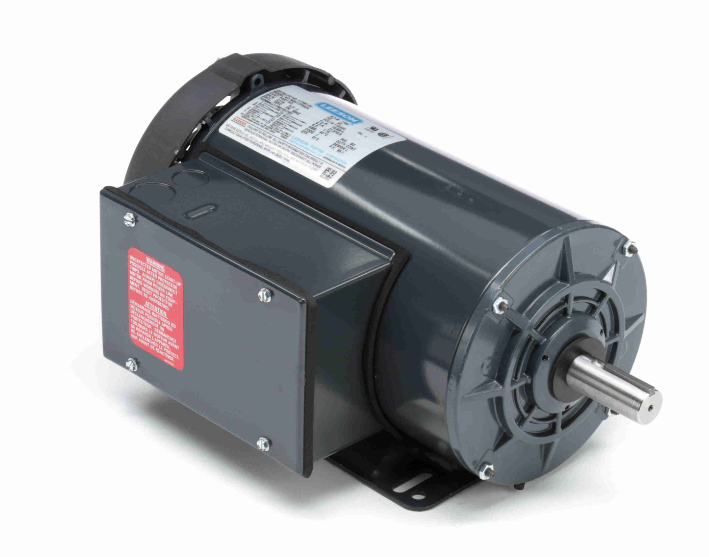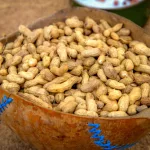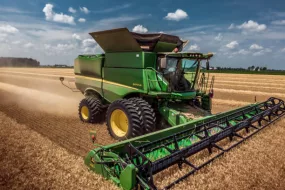Are you looking to enhance the efficiency of your farm operations? If so, you’re in the right place! In this comprehensive guide, we will delve into the world of 1.5 HP farm duty motors, uncovering their importance, use, installation tips, maintenance guidelines, and more. By the end of this article, you’ll be well-equipped to make informed decisions about these essential workhorses on your farm.
What Is a 1.5 HP Farm Duty Motor?
A 1.5 HP farm duty motor is a specific type of electric motor that is designed and built to meet the demanding needs of agricultural applications. It’s named “1.5 HP” because it typically has a power rating of 1.5 horsepower, which is a measure of the motor’s ability to do work.

These farm-duty motors are crucial components on farms because they provide the mechanical power needed to operate various types of farm machinery and equipment. These can include irrigation pumps, conveyor belts, grain augers, and other machinery used in planting, harvesting, and processing crops, as well as in managing livestock.
What sets 1.5 HP farm duty motors apart from standard electric motors is their rugged design and durability. Farms can be harsh environments with exposure to dust, moisture, temperature fluctuations, and other challenging conditions. Farm duty motors are engineered to withstand these conditions and keep running reliably.
READ, ALSO >>>>>>What Are The Top 20 Agricultural Equipment Manufacturers Redefining Farming?
In addition to their durability, these motors are known for their energy efficiency. Farming operations can be energy-intensive, and efficient motors help reduce electricity costs while minimizing the environmental impact of farm activities.
So, in a nutshell, a 1.5 HP farm duty motor is a specialized electric motor built for agricultural use, with a focus on durability, reliability, and energy efficiency to power essential farm machinery and equipment.
Here are five major brands that manufacture 1.5 HP farm-duty motors:
- Baldor Electric Company: Baldor is a well-known brand in the electric motor industry, offering a wide range of farm-duty motors, including 1.5 HP models. They are known for their reliability and durability, making them a popular choice for agricultural applications.
- Leeson Electric: Leeson Electric is another reputable manufacturer of farm-duty motors. They produce high-quality motors designed to withstand the harsh conditions often found on farms, including 1.5 HP motors that are suitable for various agricultural tasks.
- WEG Electric: WEG Electric is a global leader in the electric motor industry, known for producing efficient and reliable farm-duty motors. Their 1.5 HP motors are favored by many farmers for their performance and durability.
- Century Electric Motors: Century Electric Motors offers a range of farm-duty motors designed to meet the needs of agricultural operations. Their 1.5 HP motors are engineered for efficiency and longevity, making them a popular choice in the farming community.
- Marathon Electric: Marathon Electric manufactures farm-duty motors designed to handle the tough demands of agricultural machinery. Their 1.5 HP motors are known for their rugged construction and ability to deliver consistent power.
These brands are trusted by farmers and agricultural professionals for their commitment to producing high-quality 1.5 HP farm-duty motors that can withstand the rigors of farm life and contribute to the efficiency of various farming tasks.
Understanding the Importance
Powering Farm Machinery
One of the primary roles of 1.5 HP farm duty motors is to provide the essential mechanical power needed to operate various types of farm machinery and equipment. These motors act as the workhorses of the farm, ensuring that tasks such as pumping water for irrigation, moving crops and materials on conveyor belts, and auguring grains for storage or transport are accomplished efficiently.
Imagine an irrigation system on a large crop field. A 1.5 HP farm duty motor drives the pump that delivers water to thirsty crops, ensuring they receive the hydration they need for healthy growth. Similarly, in grain handling facilities, these motors power conveyor belts, efficiently transporting grains from one location to another.
Without the reliable and consistent power generated by these motors, many essential farm operations would become arduous and time-consuming manual tasks, which would severely hinder overall farm efficiency.
Energy Efficiency
In today’s agriculture, efficiency is not just a buzzword; it’s a necessity. Rising energy costs and environmental concerns have put the spotlight on the importance of energy-efficient equipment, and 1.5 HP farm-duty motors are no exception.
These motors are engineered with energy efficiency in mind, which means they can perform their tasks while consuming less electricity. This not only translates to cost savings for the farm but also reduces the carbon footprint of agricultural operations. As farms increasingly seek sustainable and environmentally friendly practices, having energy-efficient motors is a significant step in the right direction.
By minimizing energy wastage and maximizing output, 1.5 HP farm duty motors contribute to the overall sustainability and competitiveness of modern farming practices.
In summary, 1.5 HP farm duty motors are indispensable in agriculture for powering essential machinery and equipment, ultimately driving farm efficiency. Their robustness and energy efficiency make them key players in modern farming, allowing farms to meet the demands of today’s agricultural landscape efficiently and sustainably.
Selecting the Right 1.5 HP Farm Duty Motor
Selecting the right 1.5 HP farm-duty motor is a critical decision for any farmer. The motor you choose should align with your specific needs, ensuring that your equipment operates efficiently and reliably. Here are some key factors to consider when selecting the perfect motor for your farm:
1. Motor Type
1.5 HP farm duty motors come in various types, with the most common being single-phase and three-phase motors. The type you choose depends on the specific equipment you need to power and your electrical setup.
- Single-Phase Motors: These motors are suitable for smaller applications and are commonly found on farms with basic electrical systems. They are easy to install and cost-effective but may not provide the same level of efficiency as three-phase motors.
- Three-Phase Motors: If you have larger machinery or a more extensive electrical system, three-phase motors are a better choice. They offer higher efficiency and are better suited for heavy-duty applications. However, they may require professional installation and can be more expensive upfront.
2. Horsepower (HP)
The horsepower rating of the motor should match the power requirements of your equipment. Selecting a motor with too little horsepower can result in inefficiency and inadequate performance while choosing one with too much horsepower can lead to unnecessary energy consumption. Consider the power needs of your machinery carefully before making a decision.
3. Enclosure Type
The enclosure type of the motor is crucial, as it determines how well it can withstand the environmental conditions on your farm. Common enclosure types include:
- Open Drip-Proof (ODP): These motors are open to the environment but have shielding to prevent large particles from entering. They are suitable for indoor applications or areas where exposure to dust and moisture is minimal.
- Totally Enclosed Fan-Cooled (TEFC): TEFC motors are fully enclosed, protecting them from dust, moisture, and other contaminants. They are ideal for outdoor use and harsh farm environments.
- Explosion-Proof (XP): In hazardous areas where flammable gases or dust are present, explosion-proof motors are a necessity. They are designed to prevent sparks and ignition in such environments.
4. Voltage and Phase
Ensure that the motor’s voltage and phase match your farm’s electrical system. Using a motor with mismatched voltage or phase can lead to equipment damage and a shortened motor lifespan. Always verify compatibility before purchasing.
5. RPM (Revolutions per Minute)
The motor’s RPM rating determines its speed, and it should align with the requirements of the equipment it powers. Choosing the right RPM ensures that your machinery operates at its optimal performance level. Be sure to check the equipment’s specifications to select the appropriate RPM for your motor.
Selecting the right 1.5 HP farm duty motor involves careful consideration of motor type, horsepower, enclosure type, voltage, phase, and RPM. Taking the time to assess your specific needs and ensuring that your chosen motor aligns with them will result in efficient and reliable farm machinery operations, contributing to increased productivity on your farm.
Installation Tips
Installing a 1.5 HP farm duty motor correctly is crucial to ensure its optimal performance and longevity. Here are some essential installation tips to help you get it right:
1. Secure Mounting
- Stability is Key: Start by ensuring that the motor is securely and stably mounted to a rigid surface. Proper mounting minimizes vibration and maintains alignment with the equipment it powers.
- Vibration Isolation: To further reduce vibration and its potential negative effects, consider using vibration isolation mounts or pads. These can help extend the motor’s lifespan and improve overall equipment performance.
2. Wiring
- Follow Manufacturer Guidelines: Always follow the manufacturer’s wiring diagram and instructions. Manufacturers provide specific guidance on how to wire their motors safely and efficiently. Using the wrong wiring configuration can lead to motor damage and safety hazards.
- Use the Right Wire: Choose the appropriate wire size and type for the motor. The wire should be rated to handle the motor’s current and voltage requirements. Using undersized or incorrect wiring can result in overheating and decreased motor efficiency.
3. Cooling
- Proper Ventilation: Ensure that the motor has adequate ventilation to prevent overheating. Motors generate heat during operation, and proper airflow is essential for cooling. Make sure that there are no obstructions around the motor that could impede airflow.
- Fan Operation: Check that any built-in cooling fans or ventilation systems are functioning correctly. These components play a vital role in keeping the motor at the right temperature.
4. Maintenance
- Regular Inspection: Implement a routine inspection schedule for your 1.5 HP farm duty motor. Regularly check for signs of wear and tear, loose connections, and any unusual noises during operation.
- Lubrication: If your motor has lubrication points, make sure to lubricate them as recommended by the manufacturer. Proper lubrication helps reduce friction and extends the motor’s life.
- Cleaning: Keep the motor clean and free of dust and debris. Dust can accumulate on motor surfaces and reduce its ability to dissipate heat efficiently.
5. Safety Considerations
- Safety First: When working with electricity, prioritize safety. Ensure that the motor is disconnected from the power source before performing any maintenance or adjustments.
- Grounding: Properly ground the motor to prevent electrical hazards. Follow local electrical codes and regulations to ensure a safe installation.
- Qualified Installation: If you are not confident in your ability to install the motor correctly, consider hiring a qualified electrician or technician. Professional installation can help avoid costly mistakes and ensure safety compliance.
6. Alignment
- Alignment Matters: If the motor is connected to equipment through belts, chains, or couplings, ensure that these components are correctly aligned. Misalignment can lead to excessive wear on both the motor and the equipment.
By following these installation tips and paying attention to details, you can maximize the performance and lifespan of your 1.5 HP farm-duty motor. Proper installation not only ensures the motor operates efficiently but also contributes to the safety of your farm operations.
Troubleshooting Common Issues
Troubleshooting common issues with your 1.5 HP farm duty motor is essential to maintain its efficiency and prevent costly downtime. Here are some typical problems you might encounter and their potential solutions:
1. Motor Overheating
Issue: If the motor becomes excessively hot during operation, it could lead to performance issues and reduced lifespan.
Solution:
- Check Ventilation: Ensure that the motor has proper ventilation. Clear any obstructions around the motor that might be blocking airflow.
- Lubrication: Overheating can sometimes result from insufficient lubrication. If your motor has lubrication points, apply the recommended lubricant according to the manufacturer’s guidelines.
- Voltage and Load: Make sure the motor is operating within its voltage and load specifications. Overloading the motor or using it with the wrong voltage can cause overheating.
2. Motor Won’t Start
Issue: If the motor doesn’t start when powered, it can disrupt your farm operations.
Solution:
- Check Power Supply: Verify that there is power reaching the motor. Check circuit breakers, fuses, and the power source itself. A tripped breaker or blown fuse can prevent the motor from starting.
- Wiring Inspection: Examine the motor’s wiring for loose or damaged connections. Ensure that all connections are secure and that there are no exposed wires.
3. Unusual Noises
Issue: Unusual noises coming from the motor can be a sign of underlying problems.
Solution:
- Inspect Bearings: Noises like grinding or squealing could indicate worn or damaged bearings. Inspect and replace bearings as needed to prevent further damage.
- Alignment: Check if the motor and connected equipment are properly aligned. Misalignment can lead to increased friction and noise. Adjust and align the components as necessary.
4. Motor Vibrations
Issue: Excessive vibrations can indicate issues with motor mounting or alignment.
Solution:
- Mounting: Ensure that the motor is securely and stably mounted to a rigid surface. Check for loose bolts or mounts that may be causing vibrations.
- Alignment: As mentioned earlier, misalignment can cause vibrations. Make sure that belts, chains, couplings, or other connecting components are correctly aligned.
5. Loss of Power
Issue: If the motor’s performance seems to have decreased or it suddenly loses power, it can affect the efficiency of your farm equipment.
Solution:
- Voltage and Load: Confirm that the motor is receiving the correct voltage and operating within its load capacity. An overloaded motor may experience a loss of power.
- Inspect Wiring: Inspect the motor’s wiring for damage or loose connections. Faulty wiring can lead to power loss.
If you encounter any of these issues and are unsure how to proceed, it’s advisable to consult the motor’s manual or seek assistance from a qualified technician or electrician. Promptly addressing these issues will help keep your 1.5 HP farm duty motor running smoothly, ensuring the efficiency and reliability of your farm equipment.
Conclusion
In the world of agriculture, efficiency is paramount, and 1.5 HP farm duty motors are the unsung heroes that make it all possible. These robust motors power essential farm equipment, enhance energy efficiency, and contribute to a sustainable future.
When selecting, installing, and maintaining these motors, attention to detail is crucial. By following the guidelines outlined in this ultimate guide, you’ll be well on your way to mastering farm efficiency with 1.5 HP farm-duty motors.
Investing in the right motor and caring for it properly ensures that your farm operations run smoothly, ultimately leading to increased productivity and profitability. So, go ahead, harness the power of these motors, and watch your farm thrive!
READ, ALSO >>>>>>What Are The Top 20 Agricultural Equipment Manufacturers Redefining Farming?











